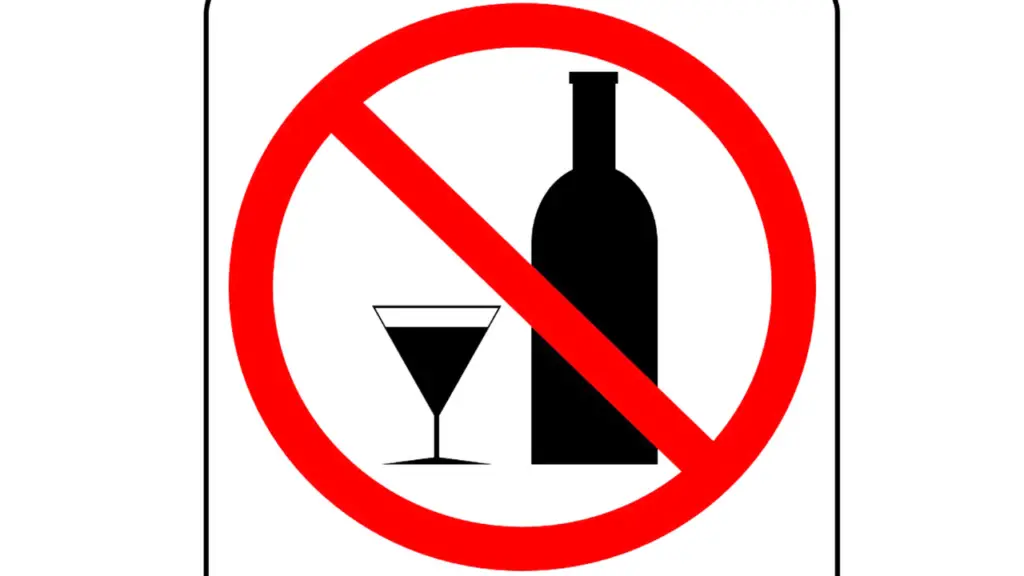
Shifting to a gluten-free diet means eliminating all products that include gluten in them for your health. This might be a hard choice if you’re new to a gluten-free diet but still want to enjoy drinking alcohol. However, if you know your basics, you’ll have no problem guiding yourself through living a gluten-free life.
Does Alcohol Have Gluten?
It might come as a surprise to a few, but alcohol generally does have gluten in it. This is due to the reason that many of the key ingredients in liquor contain protein in it. Typically, alcohol-induced with barley, rye, wheat, and malt contain gluten components in them.
You might have started a gluten-free diet for two reasons; you don’t prefer eating gluten or suffer from gluten allergies or celiac disease. If you’re not eating gluten due to personal reasons, drinking alcohol with gluten components won’t be dangerous. However, if you’re strictly following a gluten-free lifestyle, you’d still want to avoid it. Additionally, drinking too much alcohol can have negative results for anyone, regardless if you have gluten allergies or celiac disease. On the other hand, if you suffer from allergies or celiac disease, alcohol in gluten can cause mild to severe symptoms. The symptoms include headaches, bloating, chronic fatigue, abdominal pain, intestinal problems, liver complications, etc.
But a gluten-free diet doesn’t mean you need to put restrictions on yourself. There remains a wide variety of options you can choose from to enjoy your occasional drink! Read on to find how to lead the gluten-free way without diminishing alcohol from your life.
Health Benefits of Consuming Alcohol

Many drink alcohol just for the pleasure of it. But did you know, alcohol also has numerous benefits? Therefore, if you know which liquor to drink on a gluten-free diet, you’ll also be attaining the benefits of alcohol. Here are a few reasons you should be drinking alcohol on your diet plan:
- Prolonged Life- Alcohol is known to increase your life expectancy, in moderation. This is due to the various functional components it comes with that increase your body’s health. So if you’re looking for a longer and healthier life, you may want to add a drink or two.
- Lower Risk of Diabetes- Drinking alcohol in moderation can balance your insulin levels. The increase in insulin production ensures the equilibrium of glucose levels in the blood. This leads to a lower risk of type 2 diabetes, as suggested by various researches.
- Decreased Risk of Cardiovascular Disease- If you’re adding safe amounts of alcohol to your daily routine, you’re consequently lowering heart disease risks. Alcohol can increase the production of ‘good cholesterol’ in the body, decreasing the risk of blood clotting. Hence, reducing the risk of life-threatening cardiovascular disease.
- Reduced Risk of Dementia- Since alcohol aids in reducing blood clotting and increased production of good cholesterol, it can decrease dementia risks. Because both these actions improve the brain’s physical health and lower the brain’s risk of damage.
- Reduced Risk of Common Cold- Studies suggest that alcohol can reduce the chances of acquiring the common cold. Because alcohol increases the efficiency of the body’s immune system, thus lowering the chances of attaining infectious viruses.
- Improved Mental Health- Moderate consumption of alcohol can lead to better physical and mental health. Alcohol can make a person more stress-free and outgoing and relieve them of their worries. It makes alcohol a beneficial element in improving your mental health.
Gluten-Free Alcohol- What to drink?
Now, you might be wondering what you can drink on a gluten-free diet? For this, necessary information on which alcohol contains gluten and which doesn’t will come in handy. Here’s a general guide to gluten-free alcohol.
Beer
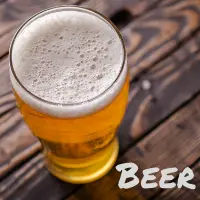
Normal beer can trigger extreme symptoms of those with celiac disease and gluten allergies. Beer is generally brewed from grains, and even the smallest amount can trigger symptoms. However, manufacturers are focusing on gluten-sensitive individuals with an increase in the production of gluten-free beer. Therefore, gluten-free beer is free from protein components and use non-gluten ingredients e.g., rice as an alternative.
Ciders
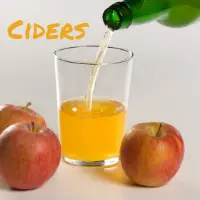
Ciders are commonly gluten-free due to being produced from fermented fruits. Renowned ciders such as apple ciders are therefore gluten-free in all-natural aspects. However, manufacturers might introduce gluten ingredients such as barley for maximizing the flavor. Hence, be sure to check the labeling or contact the manufacturer for ‘gluten-free’ even if you’re buying ciders.
Hard Liquor

Hard liquor, or grain alcohol, in other words, might be harder to identify as being gluten-free. First thing first, any liquor that goes through distillation is considered gluten-free due to the separation process. However, manufacturers might include additives such as flavors or colors that include gluten after the distillation process. As a result, you’ll need to take precautions when trying out grain alcohol. Check for gluten-free labeling, and your best bet is to avoid flavored liquor with additive ingredients.
Rum

Rum is one of the alcohols you can go for head first without worrying about gluten included in it. Due to the reason that rum comes from the distillation of sugar cane, it’s naturally gluten-free. With no added gluten components, you can drink all the rum you want on a gluten-free diet. However, avoid spiced or flavored rums since they can have additives with active gluten in it.
Vodka

In the area of liquors, you’ll have the option of gluten-free vodka as well! While vodka may be brewed with protein ingredients, you can stick to grain-free options. Many manufacturers make their vodkas with potatoes and corn, a safe option for gluten-free dieting. It ensures that you’re living the vodka life without putting yourself at risk with any grain proteins.
Whiskey

The best advice for whiskey in a gluten-free diet is to avoid it altogether. Whiskey is produced from grain ingredients that remain in the final liquor. Although, it is generally considered safe for even those with celiac disease since it contains only small amounts of gluten. However, individuals with high levels of sensitivity should avoid it altogether.
Wine

Wine might just be your best friend as a liquor on a gluten-free diet! Because wine is fully made from grapes, it includes only fruit components. It makes it safe for all individuals following a gluten-free diet, no matter the type you opt for. On the plus side, wine also comes with numerous health benefits, making it an excellent liquor choice. You can also add champagne and sparkling wine to your menu since they’re also safe to consume when going gluten-free.
Commonly Asked Questions-
The following are some of the most frequently asked questions regarding gluten in alcohol on a gluten-free diet.
Which liquor is safe to drink on a gluten-free diet?
If you’re on a gluten-free diet, and especially if you have celiac disease when buying liquor choose carefully. You’d want to look for products that have “gluten-free” labeling on them. It indicates that the ingredients in the alcohol do not naturally contain any gluten.
Does grain alcohol contain gluten in it?
The inclusion of gluten in grain alcohol depends on the distillation process it went through. Alcohol goes through an extensive distillation process to remove all grain particles that contain protein components. The exclusion of these components, including gluten, e.g., rye or barley, is safe to consume on a gluten-free diet.

Does flavored liquor contain gluten in it?
While flavored liquor does go through the distillation process that removes gluten, the flavoring is incorporated after the distillation. Meaning that if the flavor contains gluten, it gets added back in the alcohol. To be entirely on the safe side, you’d want to avoid flavored distilled liquors. As an alternative, you can also contact the manufacturer to get information on the liquor’s gluten-free status.
Should I be drinking gluten-removed liquors on a gluten-free diet?
While gluten-free liquors are entirely safe to consume on your diet, gluten-removed can be slightly problematic. Gluten-removed products are made from ingredients that contain gluten, but the gluten is removed in the process. The problem is that its gluten-free status cannot be accurately identified. For this reason, if you’re strictly off gluten, you’d want to steer clear from gluten-removed products.
What should I look for when buying liquor on a gluten-free diet?
You should generally avoid gluten-removed liquor options. Additionally, ask the brewer whether the yeast was grown free of gluten products such as wheat, barley, malt, and rye. Despite adequate testing, celiac patients should avoid liquor grown on products that contain gluten. Avoid the product entirely if the manufacturer fails to provide information on yeast growth.
How much alcohol should you be consuming on a gluten-free diet?
As long as you’re drinking gluten-free liquor, you should be good to go on your average consumption. However, too much alcohol can still cause damage to your body. Thus, it is advised that you drink in moderation and not overdo it on gluten-free drinking. This way, you can keep enjoying your occasional drinks and live a healthy lifestyle.
Conclusion
Alcohol can be an acceptable addition to a gluten-free diet, for both recreational and medical purposes. The key to consuming alcohol in a gluten-free diet is knowing what you can and cannot drink. Once you’re familiar with the aspects, you can safely enjoy an occasional drink.

Cheers!!
If you are new to eating a gluten-free diet, check out the introduction to gluten-free living here…….
https://healthyeahlife.com/introduction-to-gluten-free-living



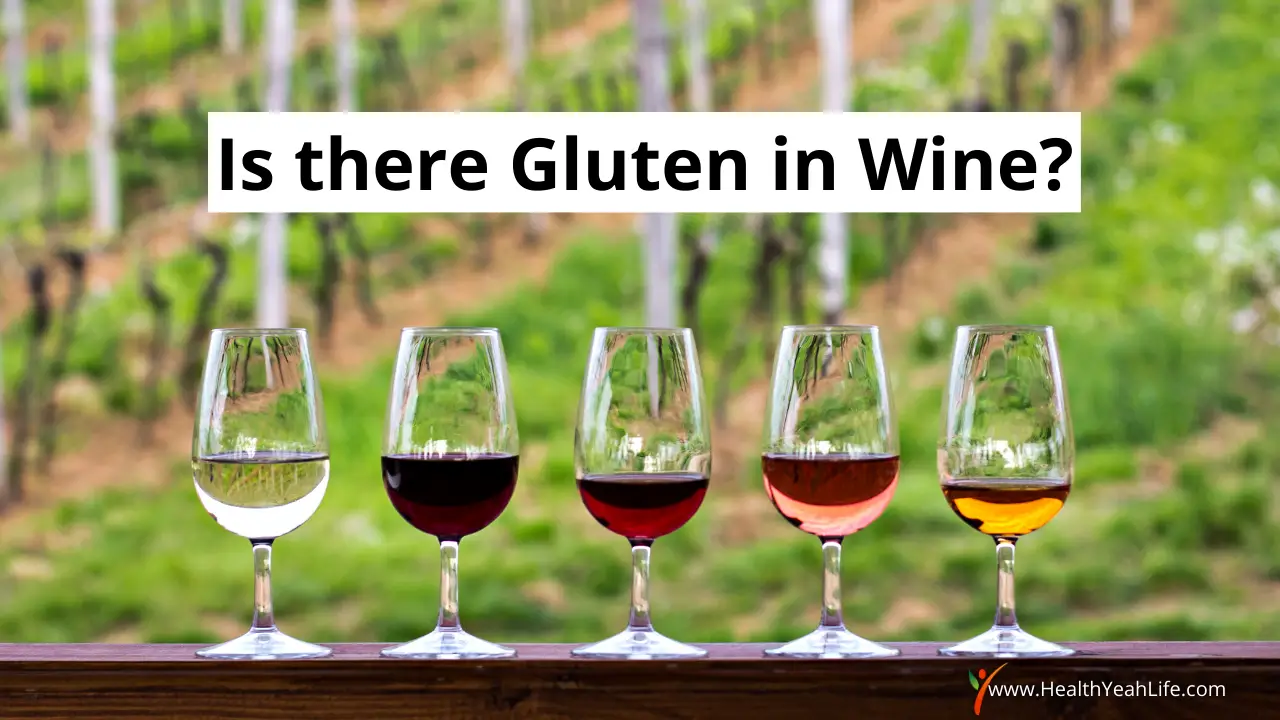
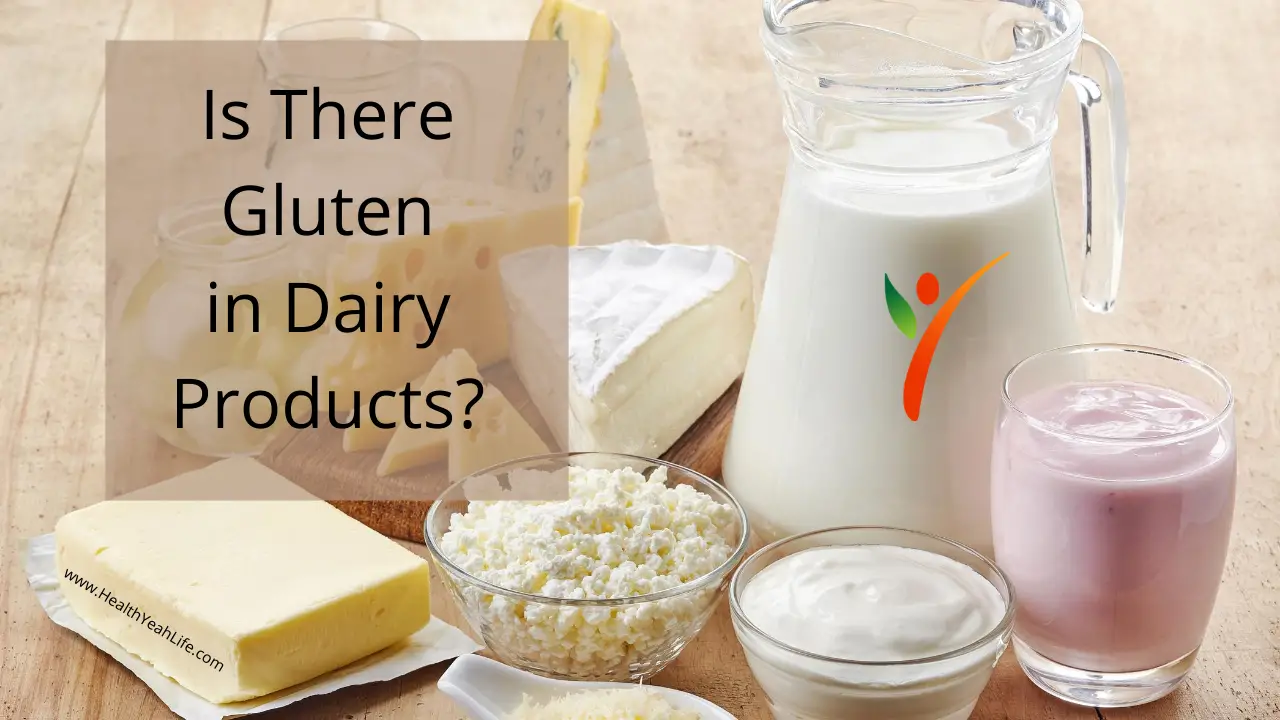
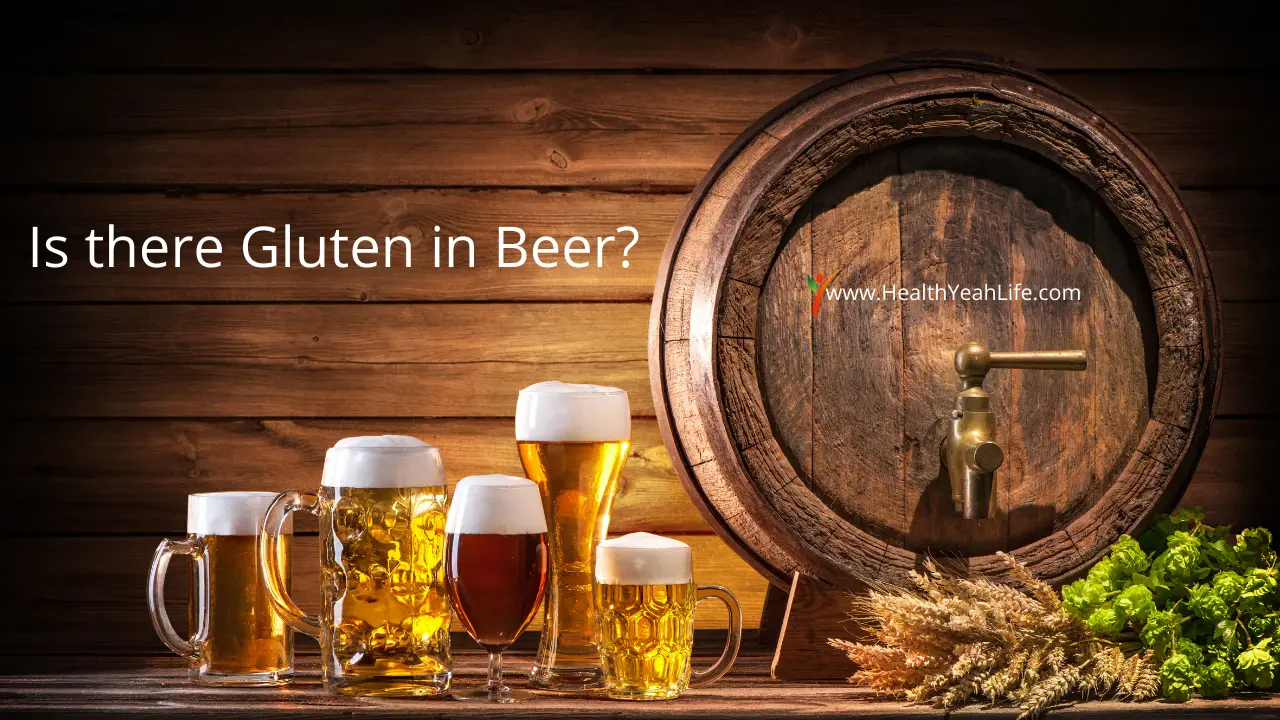
2 thoughts on “Is There Gluten in Alcohol?”
Comments are closed.